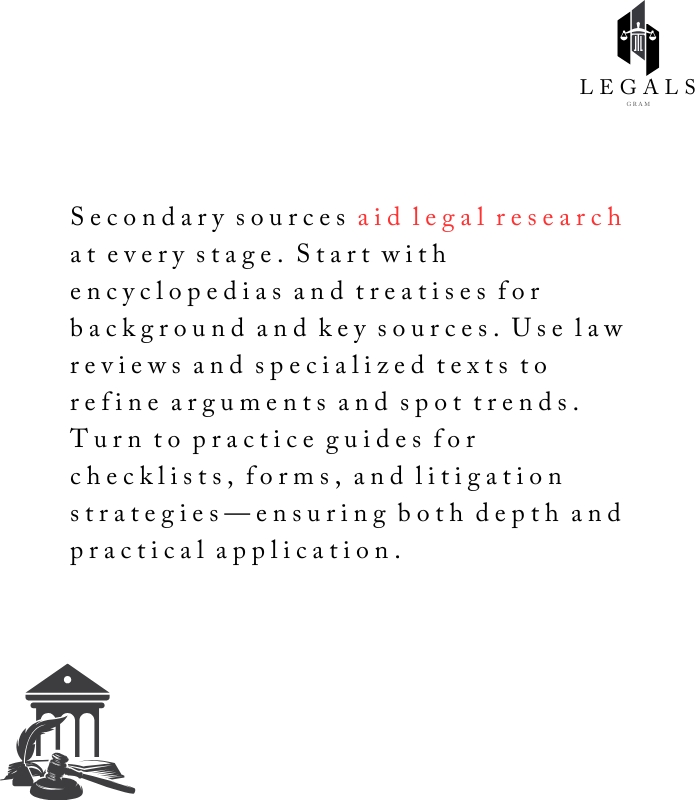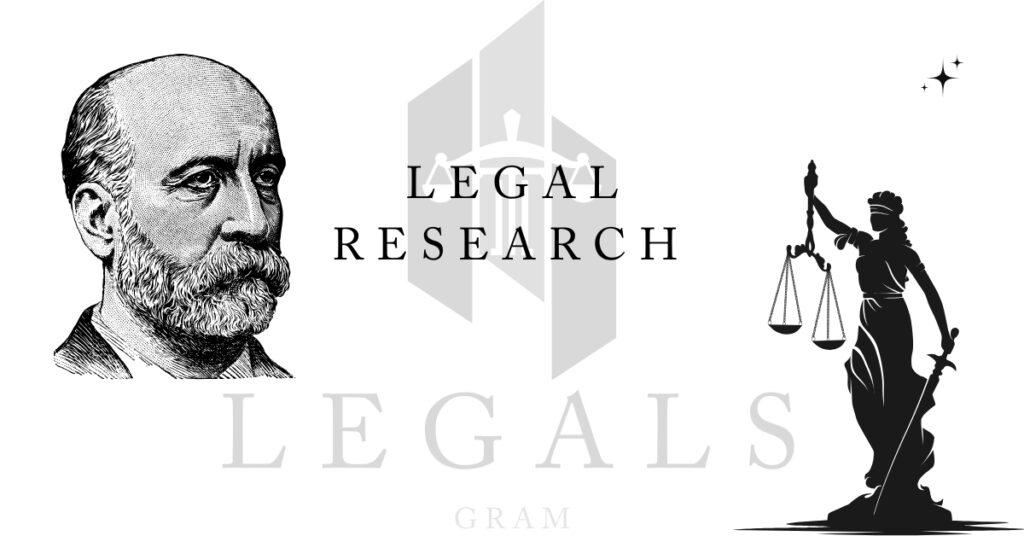No effective legal practice can exist without strong legal research. New lawyers who have just finished law school may have a hard time adjusting to practical research instead of research for schoolwork. This guide will teach you new research strategies, important tools and helpful methods that can help you improve your reputation for doing solid and efficient legal research.
Understanding the Evolution of Legal Research
Legal research has seen major changes in the last twenty years. Searches that took days to do in a law library can usually be completed more quickly using the Internet. However, this efficiency comes with new challenges:
- Information overload from too many sources
- Difficulty assessing the reliability of digital resources
- The need to balance comprehensive research with cost-effectiveness
- Client expectations for faster turnaround times
To succeed in modern legal research, one needs to know about both traditional laws and modern technology.
Establishing a Strategic Research Framework
The FIRAC Method Revisited
While law school taught you the FIRAC (Facts, Issue, Rule, Application, Conclusion) method for case analysis, professional legal research demands a more nuanced approach:
- Define the precise legal question – Make sure you know the main issue to solve as you begin your research process
- Identify relevant jurisdictions – Figure out what entities will be given power to make decisions in each situation.
- Establish research parameters – Allocate resources and time according to how significant the case is and the budget allowed by the client
- Select appropriate research tools – Find and evaluate materials from primary sources, secondary sources and specialist databases.
- Document your methodology – Maintain a note of your research strategy so you can check it again and don’t repeat efforts
Having this planning helps young lawyers stay away from researching everything possible and not getting key results.
Mastering Primary Source Research
Case Law Research Beyond the Basics
Effective case law research requires understanding:
- Precedential weight – Distinguish between binding and persuasive authority
- Case history – Use citator services to verify if cases remain good law
- Procedural posture – Review cases using citator services to determine if they are still followed by courts
- Finding “hidden” cases – UInvestigate cases that can be found with fact-pattern searches and topic systems beyond the ones you find with keyword searches
Pro Tip:
Make sure to go through the entire opinion when learning from a case law, not only its summary. Looking at the full context can make differences stand out that are left out when summarizing. Why Choose a Legal Career? Benefits, Challenges & Expert Insights
Statutory Research Techniques
Effective statutory research involves:
- Understanding the interaction between statutes and regulations
- Researching legislative history to clarify ambiguous language
- Tracking pending amendments that might affect your analysis
- Cross-referencing related statutory provisions
Annotated codes give extra information using notes and references across codes which unannotated codes don’t have.
Leveraging Secondary Sources Strategically
Secondary sources serve different functions at different stages of research:

Beginning Research
Start with treatises, practice guides, and legal encyclopedias to:
- Gain subject matter orientation
- Identify key primary sources
- Understand prevailing interpretations
- Learn specialized terminology
Deepening Analysis
As your research progresses, use law review articles, practice guides, and specialized treatises to:
- Develop counterarguments
- Identify emerging trends
- Find policy arguments
- Discover arguments in jurisdictions with limited precedent
Finding Practical Guidance
Practice-oriented sources provide:
- Sample pleadings and documents
- Checklists for procedural compliance
- Strategy recommendations
- Settlement valuation guidance
Digital Research Platforms: Strengths and Limitations
Major Commercial Platforms
Platforms like Westlaw, LexisNexis, and Bloomberg Law offer:
- Comprehensive primary source coverage
- Powerful search algorithms
- Integrated citator services
- Practice-specific content libraries
However, their costs can be substantial. Young lawyers should:
- Understand their firm’s billing policies for research costs
- Learn platform-specific search syntax for efficient searches
- Use client/matter codes appropriately
- Leverage training resources offered by vendors
Free and Low-Cost Alternatives
Budget-conscious research can leverage:
- Government websites – For statutes, regulations, and some case law
- Google Scholar – For case law and academic articles
- Law library access – Many provide remote access to subscribers
- Specialized free databases – Like those for specific practice areas
The key is understanding what each resource covers and its limitations.
Advanced Search Techniques for Efficient Research
Boolean Searching
Master these essential operators:
- AND, OR, NOT for combining terms
- Proximity operators (w/n, /p, etc.)
- Wildcard and truncation symbols
- Phrase searching with quotation marks
Natural Language Optimization
When using natural language search:
- Include synonyms for key concepts
- Prioritize distinctive terms over common ones
- Use complete sentences that mirror language found in relevant documents
- Refine based on initial results
Filters and Facets
Narrow results effectively with:
- Jurisdictional filters
- Date restrictions
- Document type limitations
- Court level specifications
- Practice area categorization
Building an Effective Research Documentation System
Creating a personal research system pays dividends throughout your career:

Research Logs
Maintain logs that include:
- Search terms used
- Databases consulted
- Most relevant authorities found
- Eliminated paths (to avoid duplication)
- Time spent on each research segment
Digital Organization
Organize your digital research by:
- Creating matter-specific folders with consistent naming conventions
- Saving important searches for later reference
- Using descriptive file names that include date and content information
- Tagging documents with key concepts for easy retrieval
Research Memoranda
Even when not required, briefly summarize key findings for:
- Your future reference
- Knowledge sharing with colleagues
- Creating a resource library for similar questions
- Demonstrating value to clients
Practice-Specific Research Considerations
Litigation Research
Litigation research requires:
- Jurisdiction-specific procedural rules
- Judge-specific preferences and tendencies
- Local court rules and standing orders
- Expert witness qualification standards
- Evidentiary requirements
Transactional Research
For transactional practice, focus on:
- Regulatory compliance requirements
- Standard market terms and provisions
- Industry-specific precedent transactions
- Tax implications of different structures
- Entity-specific governance requirements
Time Management for Legal Researchers
The 80/20 Principle Applied
Apply the Pareto principle to research:
- Identify the 20% of sources likely to contain 80% of relevant information
- Set time limits for initial research before reassessing
- Recognize diminishing returns on extended research
- Balance thoroughness against practical constraints
Delegation and Collaboration
Effective research often involves:
- Appropriate delegation to paralegals or junior associates
- Collaboration with librarians for complex searches
- Consulting with practice area specialists
- Leveraging knowledge management systems
Ethical Considerations in Legal Research
Your research obligations include:
Competence and Thoroughness
Under Model Rule 1.1, lawyers must provide competent representation, which includes thorough research appropriate to the matter’s complexity. Stop Failing Law Exams: 10 Study Tricks You Need Right Now
Disclosure of Adverse Authority
Model Rule 3.3 requires candor toward tribunals, including disclosing adverse controlling authority.
Billing Ethics
Research billing should:
- Accurately reflect time spent
- Avoid duplicate research where possible
- Use client resources efficiently
- Distinguish between billable research and professional development
Developing Research Expertise Over Time
Continuous Learning
Stay current through:
- Practice area alerts and newsletters
- Attending CLE programs on research techniques
- Following legal technology developments
- Participating in bar association research committees
Specialization
As your career progresses:
- Develop deep familiarity with key sources in your practice area
- Create personal research templates for recurring issues
- Build a network of specialists for consultation
- Contribute to knowledge management within your organization
Practical Tips from Experienced Researchers
- Start broad, then narrow – Look at secondary sources first before going on to learn from primary sources
- Use multiple research paths – Learn about the subject from many viewpoints to cover all the details.
- Check currency obsessively – Ensure that all the authority is still current before using it.
- Save effective searches – Make a record of the effective search ideas you have used for next time.
- Schedule research blocks – Devote your attention to one session of research, not to short bursts here and there
- Know when to ask for help – Study to determine when enlisting outside help is valuable
Conclusion: Research as a Career-Long Skill
Doing legal research is more than just working, as it is an important skill you improve as your career develops. If you systematize your steps, get proficient with new techniques and keep refining your approach, research becomes a useful way to give you an advantage. How To Avoid 5 Common Mistakes Law Students Make on Exams
The most accomplished young lawyers see that having excellent legal research is the basis for all their other legal abilities. Research plays a key role in the outcomes of persuasion, advice or negotiation.
Following the directions outlined in this guide means you meet your supervisors’ and clients’ needs now and also demonstrate dedication, thoroughness, skill and reliability as a law professional which can help you succeed in your career.



